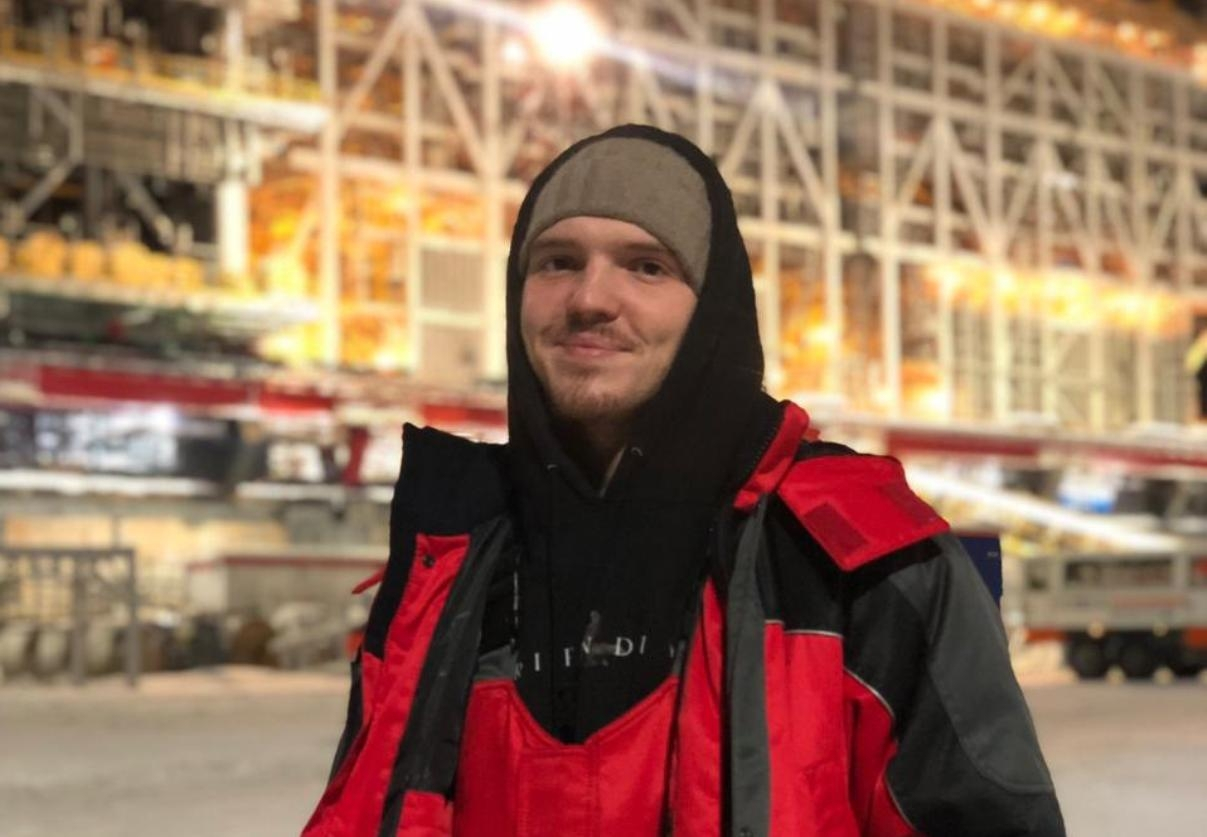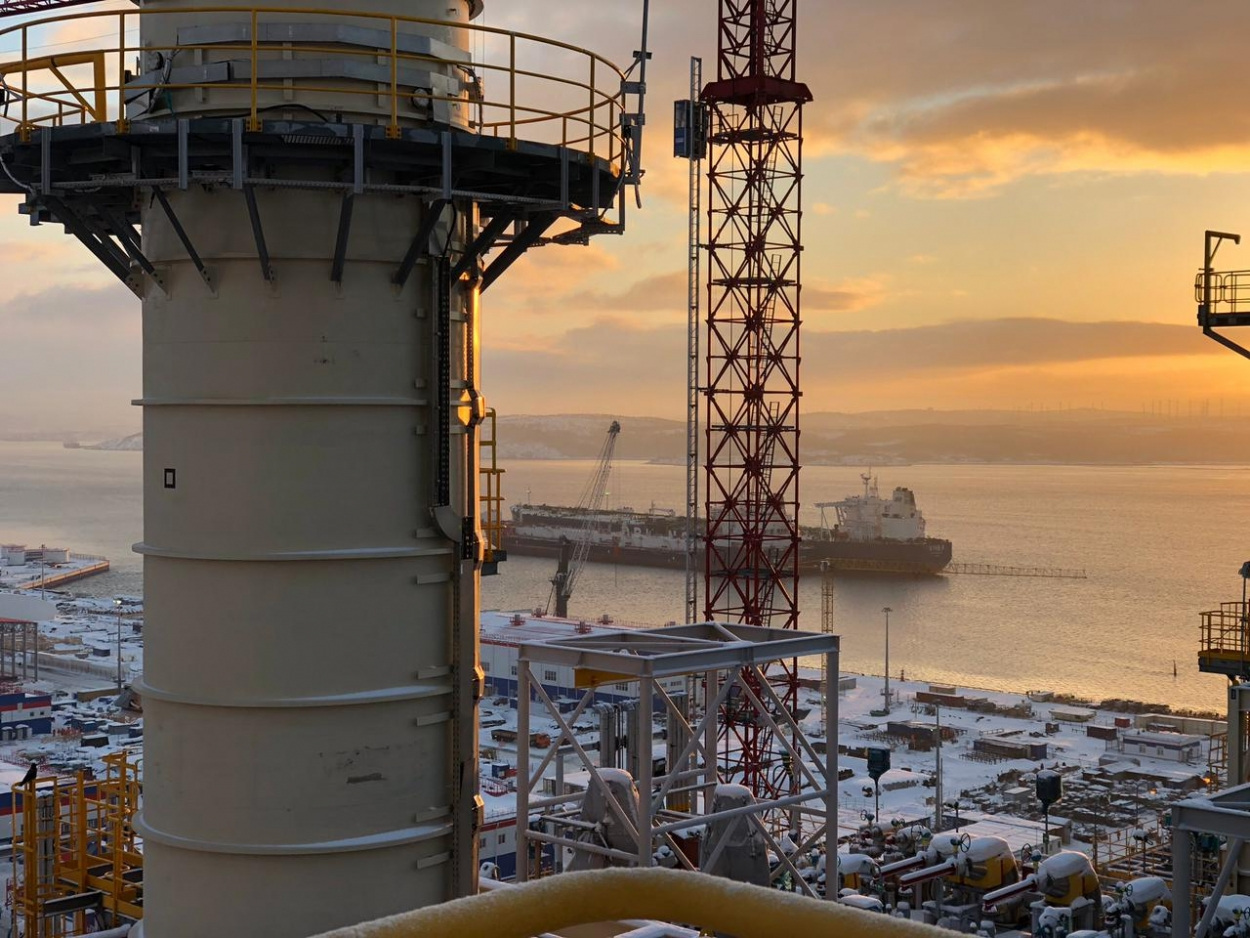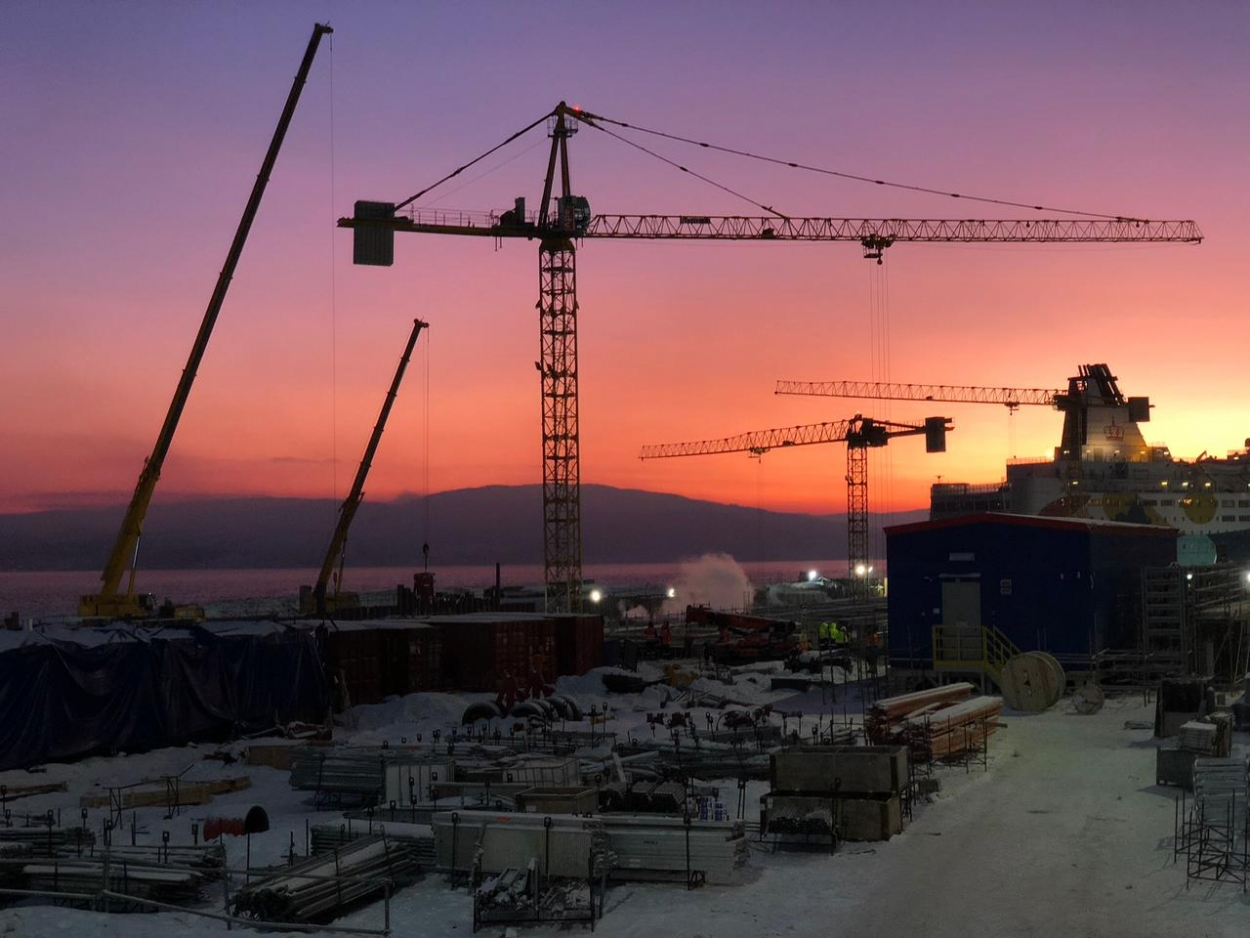St Petersburg University Student About Work in the Arctic: ‘You Are an Astronaut Who Has Never left the Earth!’

Three students of master’s programme ‘‘Intercultural Communication and Translation in the Oil and Gas Industry’’ took part in the competition of the Novatek company and were selected to work on the construction of a plant for the production and processing of natural liquefied gas in the Yamalo-Nenets Autonomous District.
Currently, the construction of a centre near Murmansk has begun, there will be manufactured and assembled large-tonnage offshore structures to create a floating platform as part of the Arctic LNG 2 project. It is exactly where SPbU student Evgeny Mokeev went on duty as an interpreter. In this interview, he spoke about how he rethought his perception of the profession and what experience he gained while working in the North.
Please tell us how did you find out about the competition? How difficult was it to qualify?
Was it difficult to pass the competition? Rather exciting because of a number of reasons. The management team is based in another city, this makes its own adjustments to the format of the interview. In addition, there were plenty of applicants that affected the date of the competition several times. Moreover, among the number of candidates there were interpreters who had twenty years of experience. Exciting and extremely fascinating!
Of course without the education received, there would not have been a single chance of success in the interview. The competitive advantage of the programme lies in the fact that the training is built on the consideration of the oil and gas industry from all sides: the story line originates in the stages of geology and, it seems, touching equipment, economic aspects and intercultural communication along the way, never ends. As for the competition itself, the test in the form of consecutive translation, simultaneous translation and sight translation was reminiscent of the Teams classes.
All words of gratitude today are addressed to our teacher Lilia Timofeeva (Department of Foreign Languages in Economics and Law). The recommendation from such a respected teacher and a true master of her craft perceives as the highest manifestation of trust and a direct call to action.
Your specialization is complex and in a narrows area — the oil and gas industry. How is training of an interpreter in this field different from training a generalist interpreter?
From my point of view, an interpreter is a very sector-specific specialist. In the old days, the process of learning was based on the transfer of norms and rules that the interpreter could potentially apply regardless of the given context. The problem is that this approach is absolutely fantastic, because the nature of the human brain excludes the possibility of absolute knowledge. Today, within the walls of our university, experts from various fields of activity guide the future interpreter on the true path of professional specialization. Mastering the basic concepts, methods and techniques of translation is supported by the obligatory assimilation of the fundamental principles of a particular industry.
Admission to the Master’s programme “Intercultural Communication and Translation in the Oil and Gas Industry” was opened in 2020.
Why is an interpreter needed during the construction of Russian oil and gas facilities? What was your job?
“Field interpreter” has a fairly wide function — from translating documentation and meetings to translation on site and conducting telephone conversations.
The involvement of specialists from all over the globe is determined by the high significance of the project for both the national and the global economy. It is important to note that the high objectives of the project are achievable primarily due to the competence of the participants in the process at all its stages.
The importance of an interpreter in overcoming emerging linguistic and cultural barriers is difficult to overestimate.
I like to refer to the ideas of Fritz Kahn, who saw the similarity of the human body with the industrial palace. Surprising as it may seem, but being involved in the construction of an enterprise you recognize the features of a “human creation” in metal structures. Let’s say the head is the project’s customers, the people at the big consoles. The hands are site specialists whose work duties include construction and commissioning.

The interpreter is a nerve impulse, a kind of brain cipher. Not only individual cells (specialists from all over the world), but also nerve centres (subcontractors, contractors, and even project customers) speak the language of these signals among themselves. Every element (bosses, technical staff, managers, engineers or builders) is a puzzle that an interpreter must solve in order for the constituent parts of the body to achieve coherence.
Work in the oil and gas sector is often associated with business trips to the Arctic zone. Are there any peculiarities here that an applicant for a master’s programme may not think about?
Perhaps I would call such an experience a journey into an alternate reality. The key feature of business trips of this format is that a paradigm shift is impossible without abandoning the already known model of the world. Closed facilities, access control, never-before-seen decorations...However, the consciousness of the exclusivity of the mission before you to some extent even brings pleasure. You are an astronaut who has never left the Earth!
Has the experience of working in such a large company been useful for you?
My stay in the Far North lasted almost two months which of course leaves its mark. Such experience is a good support for further professional growth, but it would be reckless to say that only this is the only limit to the delights of working on a major international project.
You get a unique chance to look at yourself from the outside, test your limits and expand your own understanding of the world.

The saturation of the cultural palette is due to the presence of workers from all over the world and to tell the truth it is difficult for me to immediately name a country that would not be represented by international companies. From Australia to the UK, Venezuela and even Mauritius!
Self-confidence is a natural result of the work done. So, anxiety before the meetings is replaced by a smile and each climb to the modular structures becomes an unforgettable excursion! You go outside — and there is the North, the Gulf of the Barents Sea, fresh air and incredible views ... The phone is literally swollen with hundreds of photos! I especially liked the cranes, their static position against the background of rapidly changing weather conditions is especially spectacular. I think I managed to build a solid portfolio of these cranes!

